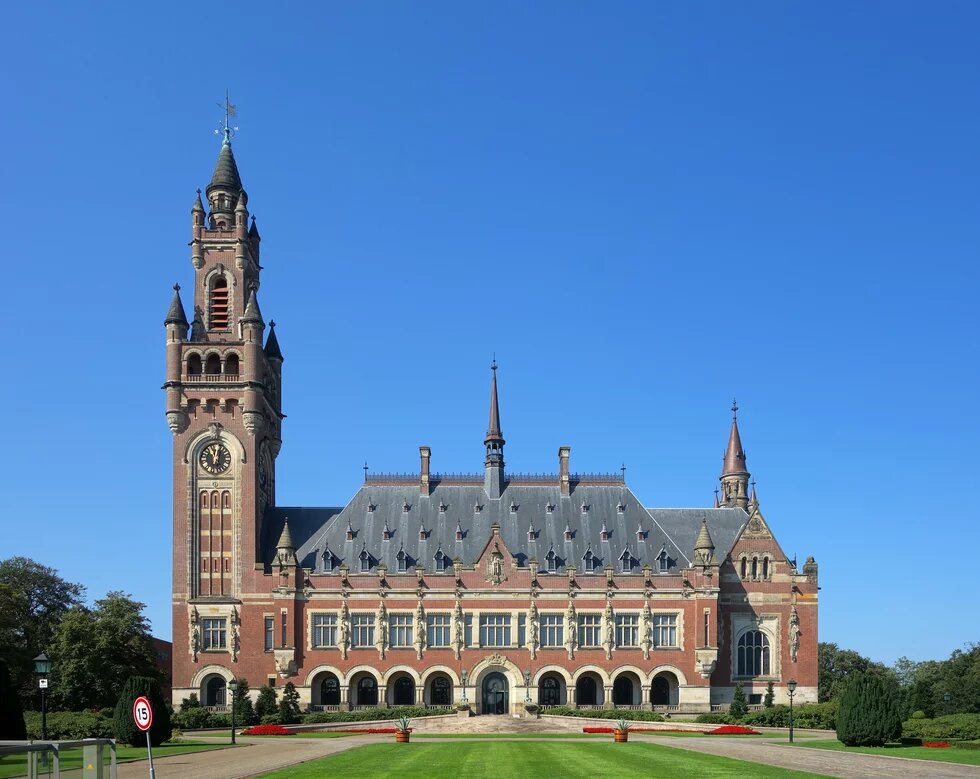The recent ICJ ruling is a landmark decision for the fight against climate change, addressing state responsibility for ambitious, scientifically supported climate action. It also clears the path for potential climate reparations in the future.

In a ground-breaking moment for climate justice, the International Court of Justice (ICJ) in addressing for the first time the issue of climate change, on July 23th delivered a unanimous 140-page advisory opinion.
It confirms that states have legal obligations under international human rights law and international environmental treaties, including the UNFCCC and the Paris Agreement, to make all efforts and take all necessary measures to protect the climate and safeguard a clean, healthy and sustainable environment as the basis for the enjoyment of human rights and intergenerational equity. The ICJ decision follows another opinion by the Inter-American Court of Human Rights just weeks ago also affirming a right to a healthy climate.
Individual NDCs must be ambitious
While not legally binding, the decision is expected to have a significant impact in courts and negotiations around the world and to influence discussions about climate ambition and Parties’ obligation at COP30 in Belém, Brazil in November. This comes at a time when Parties to the Paris Agreement are asked to increase the ambition of their emissions reductions commitments in a new round of nationally determined contributions (NDCs). The ICJ determined that NDCs are not discretionary, as polluting states in court hearings in December argued, but instead must collectively be capable of realizing the goal of the Paris Agreement to limit global warming to the 1.5C target. The court also clarified and confirmed the continuing obligation of developed countries to provide developing countries with climate finance support for mitigation and adaptation “in a manner and at a level that allows for the achievement” of this target.
The ICJ advisory opinion is a powerful affirmation that the entire body of existing international treaty law, including human rights law, the law of the sea, customary international law and other environmental treaties, governs climate obligations. These obligations apply to all states, irrespective of whether they are parties to climate treaties. The ICJ rejected the argument made by big polluting nations that only climate treaties apply.
USA still liable despite withdrawal from Paris Agreement
Just weeks after a lackluster UNFCCC negotiation session in Bonn – the first climate negotiations in 30 years without the United States – this ruling gives hope that mounting legal, scientific and moral pressure can compel all states to act and can hold historical polluters to account. The ICJ makes it clear that this includes the United States – despite leaving the Paris Agreement. Even though climate harm comes from multiple states and actors, each state can still be held individually responsible for its contribution.
Importantly, the production of fossil fuels, their consumption, the granting of exploration licenses, and the payment of fossil fuel subsidies can all constitute breaches of climate-related obligations under customary international law. States also have an obligation to curtail polluting actions by the private sector through appropriate regulation. Climate litigation against states and corporations is certain to pick up after these findings.
Liability and climate reparations are now possible remedies
Most strikingly, the court’s advisory opinion opens the door to require reparations from states that fail to fulfill all of their climate-related obligations. Liability and climate reparations - which the United States successfully kept out of the Paris Agreement’s Article 8 on Loss & Damage – is now a distinct possibility. This will give hope and an alternative venue to push for adequate support to address Loss & Damage, given the current dismal state of funding support for the UNFCCC Fund for responding to Loss & Damage (FRLD). Considered a 'solidarity fund' with only voluntary contributions by all countries, even developed countries as historic polluters, it has currently several hundred million in its bank account, instead of the hundreds of billions required to address, and provide some form of compensation and redress, for, the escalating losses and damages already violating fundamental human rights of the most vulnerable people and communities in developing countries.
The ICJ’s ruling was the result of several years of efforts initiated by the group Pacific Island Students Fighting Climate Change (PISFCC). It gathered the support of civil society organizations, and governments – particularly those of Small Island Developing States, with Vanuatu taking the lead. Their campaign culminated in a unanimous UN General Assembly resolution in March 2023 requesting the ICJ to weigh in on the obligations of states under international law in relation to climate change and on the legal consequences for states not meeting or breaching these obligations. The advisory opinion was issued after two rounds of written submissions with record participation and the ICJ hearing two weeks of legal arguments in December 2024.
This article first appeared here: us.boell.org

